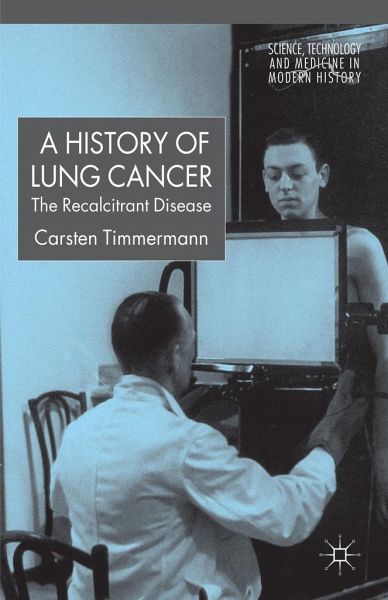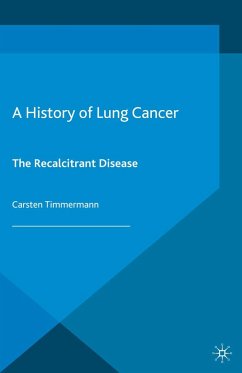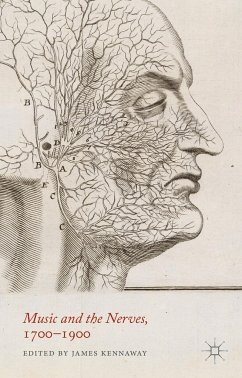
Versandkostenfrei!
Versandfertig in 6-10 Tagen
Weitere Ausgaben:

PAYBACK Punkte
34 °P sammeln!





The first comprehensive history of lung cancer from around 1800 to the present day; a story of doctors and patients, hopes and fears, expectations and frustrations. Where most histories of medicine focus on progress, Timmermann asks what happens when medical progress does not seem to make much difference.
Carsten Timmermann is a Lecturer at the Centre for the History of Science, Technology and Medicine, University of Manchester, UK. He is the editor (with Elizabeth Toon) of Cancer Patients, Cancer Pathways: Historical and Sociological Perspectives (Palgrave Macmillan, 2012) and (with Julie Anderson) of Devices and Designs: Medical Technologies in Historical Perspective (Palgrave Macmillan, 2006).
Produktdetails
- Science, Technology and Medicine in Modern History
- Verlag: Palgrave Macmillan / Springer Palgrave Macmillan
- Artikelnr. des Verlages: 978-1-4039-8802-7
- 2014
- Seitenzahl: 244
- Erscheinungstermin: 20. November 2013
- Englisch
- Abmessung: 218mm x 142mm x 20mm
- Gewicht: 445g
- ISBN-13: 9781403988027
- ISBN-10: 1403988021
- Artikelnr.: 22957635
Herstellerkennzeichnung
Libri GmbH
Europaallee 1
36244 Bad Hersfeld
gpsr@libri.de
(Regarding this and Timmermann's previous book, with Elizabeth Toon, Cancer Patients, Cancer Pathways: Historical and Social Perspectives , 2012) 'These books, with their origins in the Centre for the History of Science, Technology and Medicine at the University of Manchester, present an excellent insight into what it has been to have cancer. Collectively, they present three theses of great value to historians of medicine. The first of these is that no single way of writing the history of cancer can ever be adequate. Cancer is transformative in ways that are anything but simple, meaning that a profusion of different narratives and techniques are required to approach anything like understanding. Second, the field of cancer medicine challenges the historian of medicine because it has often been without progress, a recurring if not universal trope among historians. The third thesis is this: not all cancers are equal. In its broadest sense, this observation is trivial. Yet these books excel at fleshing out this bit of general knowledge by illustrating substantive differences between different cancers in different contexts over the twentieth century.' - Brendan Clarke, University College London, UK
Für dieses Produkt wurde noch keine Bewertung abgegeben. Wir würden uns sehr freuen, wenn du die erste Bewertung schreibst!
Eine Bewertung schreiben
Eine Bewertung schreiben
Andere Kunden interessierten sich für











